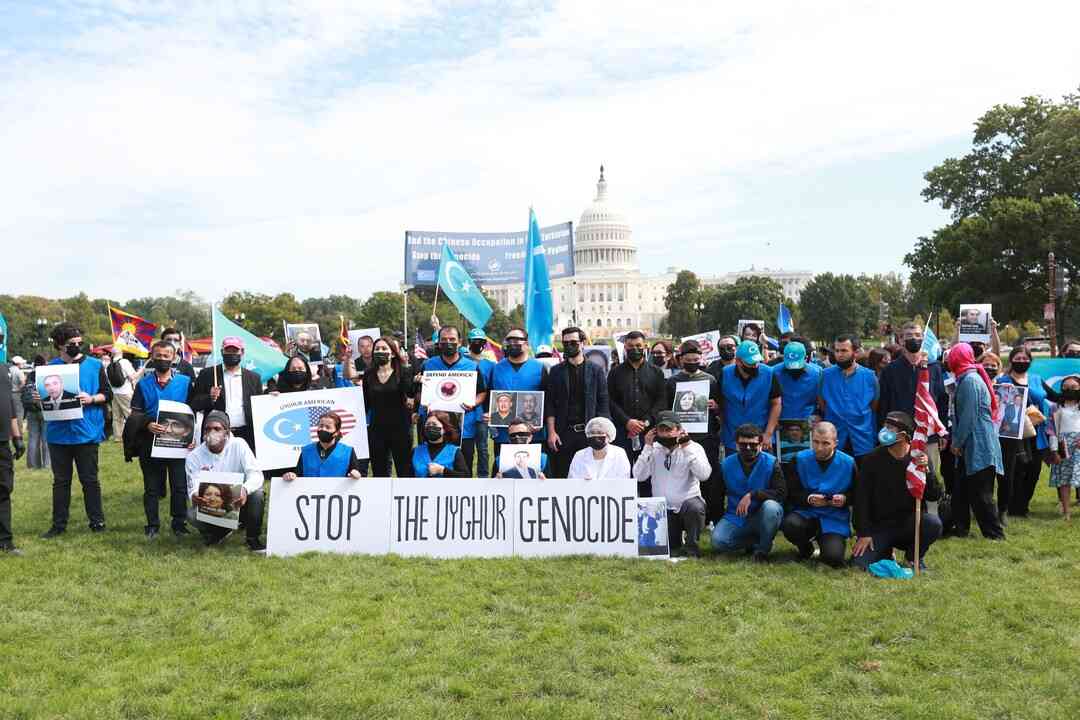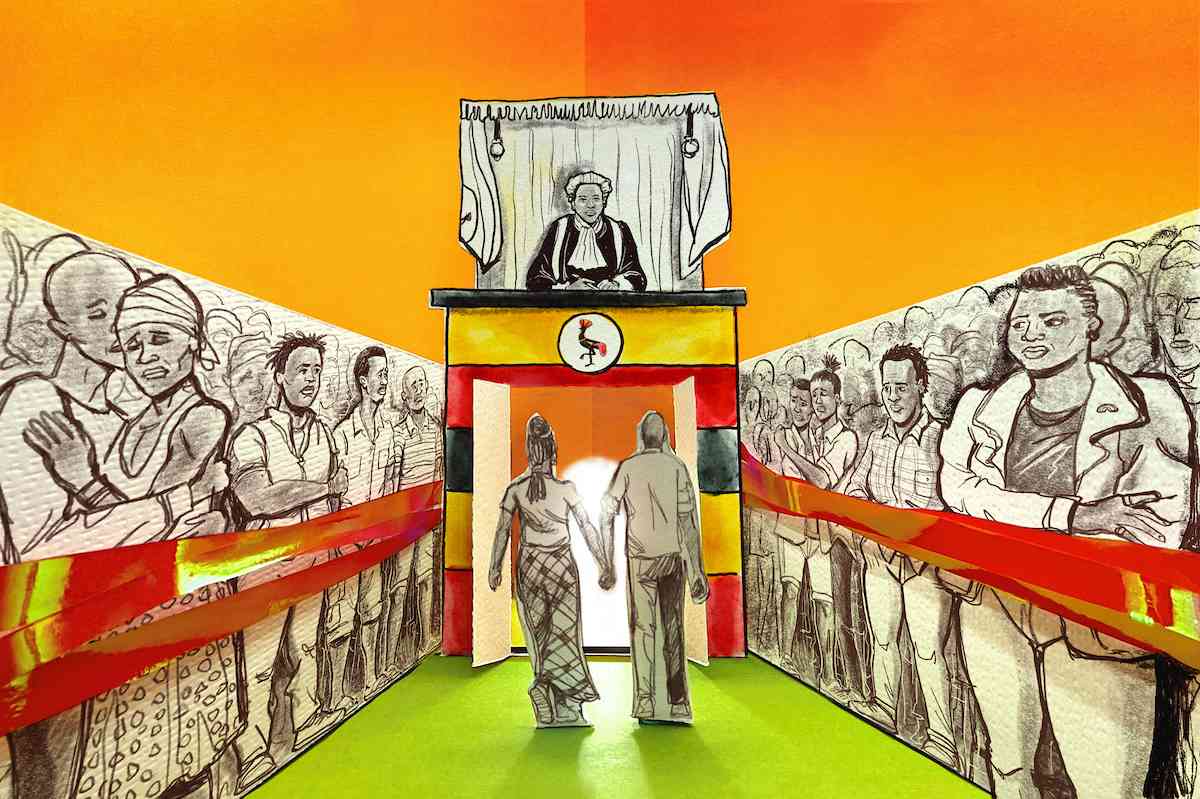
A little more than a year after Ugandan President Yoweri Museveni signed one of the world’s harshest LGBTQ+ laws, another bill under parliamentary review has reignited concerns over the rights of lesbian, gay, bisexual, transgender, queer and other sexual and gender minorities in the country — as well as single parents.
The Human Assisted Reproductive Technology Bill, which awaits its second reading, allows only “a man and a woman” who face infertility or challenges conceiving to access assisted reproductive technology. The bill also requires doctors administering such treatments to establish that a person suffers from infertility or another health challenge affecting their ability to reproduce.
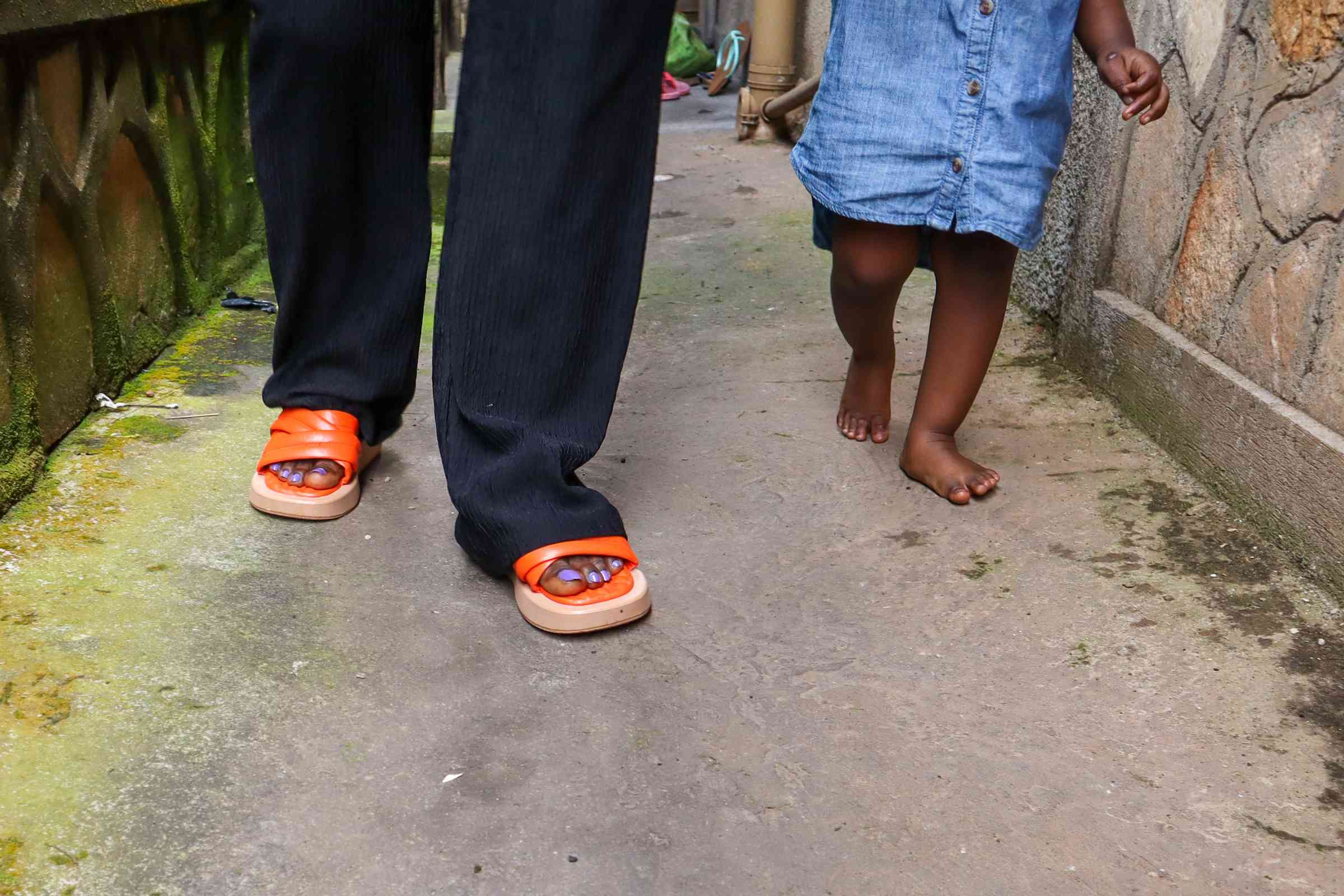
Advocates of the bill say it creates needed regulations around assisted reproductive technology such as in vitro fertilization, commonly called IVF. But Uganda’s sexual and gender minorities, along with some medical professionals and human rights activists, see it as part of a broader anti-LGBTQ+ push, shaped in part by foreign conservative groups.
They worry that if the bill becomes law, it will be even harder for sexual and gender minorities, who already face medical discrimination, to access fertility care. The Anti-Homosexuality Act, signed last year, imposes life imprisonment and even, in some cases, the death penalty and various other penalties for attempted, suspected or promotion of homosexuality. The reproductive technology bill’s language is unfairly restrictive, says Resty
Nalwanga, a Kampala-based human rights lawyer. “[It] simply denies single individuals who are divorced, widowed and other categories of single people a chance from becoming parents,” she says. Opendi Sarah Ochieng, the lawmaker and former health minister who introduced the bill to Parliament in October 2023, did not respond to questions about whether the bill would put sexual and gender minorities at a disadvantage. She told Global Press Journal via WhatsApp that the bill is part of her broader campaign against stigmatization of infertility, which she has championed since 2016 during her tenure as Uganda’s health minister.
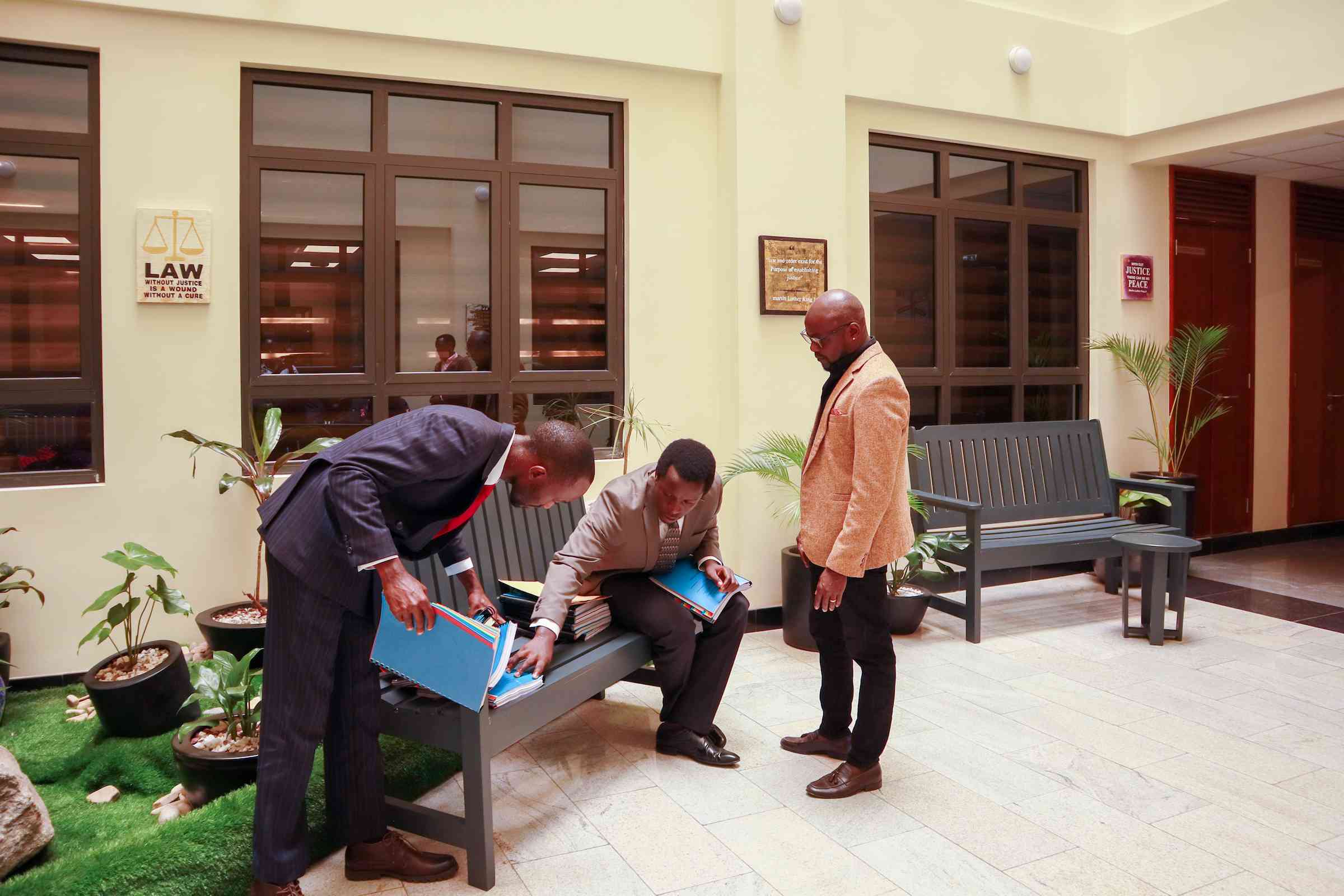
The bill would bring guardrails to a practice that needs them, says Dr. Joseph Muhumuza, an obstetrician and gynecologist at Roswell Women and Children Hospital in Kampala. He says fertility doctors have been operating without any regulations. To him, the bill would “protect the patient’s rights,” especially in cases where there are complications or errors. Still, he says, he finds it restrictive, particularly for unmarried people. He says he is uncomfortable speculating how the bill might affect sexual and gender minorities, stating that sexuality is not typically something he discusses with his patients.
- Fear of hospitals forces Covid-19 patients to treat themselves
- Fear of hospitals forces Covid-19 patients to treat themselves
- Zim entrepreneur joins Obama elite club
- Sex education to be compulsory in Irish schools
Keep Reading
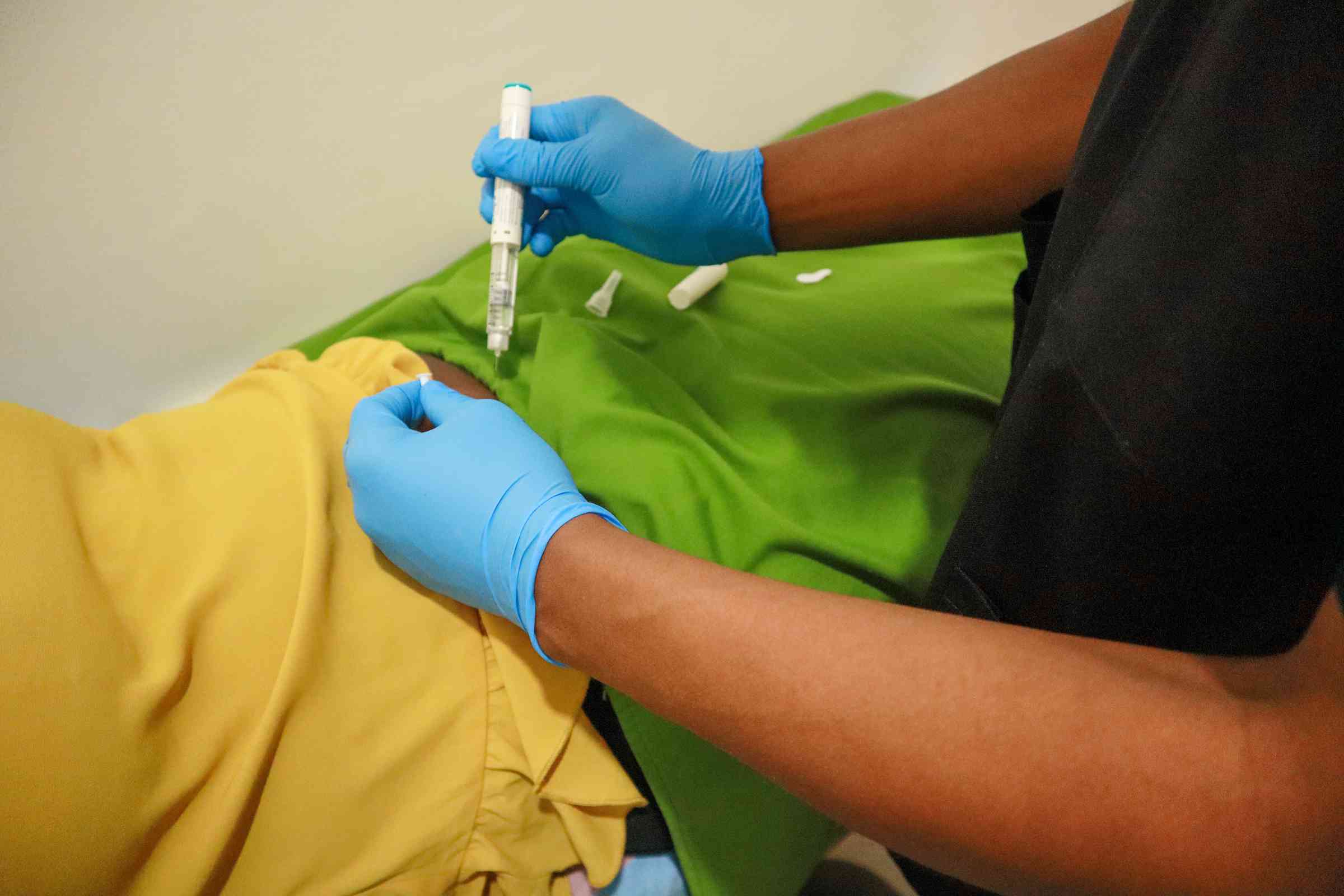
For Pepe Julian Onziema, a transgender man and human rights activist, the problem goes far beyond a single piece of legislation. He says the bill is part of a larger wave of anti-LGBTQ+ policies taking root in Uganda and influenced by outside conservative groups, many based in the United States. “Their motives have been to close every single gap that might give the community the rights to existence, and block our rights to reproduction,” he says.
Many advocates of sexual and gender minorities in Uganda view the opposition of some U.S.-based organizations to comprehensive sex education as a clear push to create an atmosphere of hate against sexual and gender minorities. One such organization is Family Watch International, a U.S.-based organization that has worked over decades to limit such curriculum in Uganda.
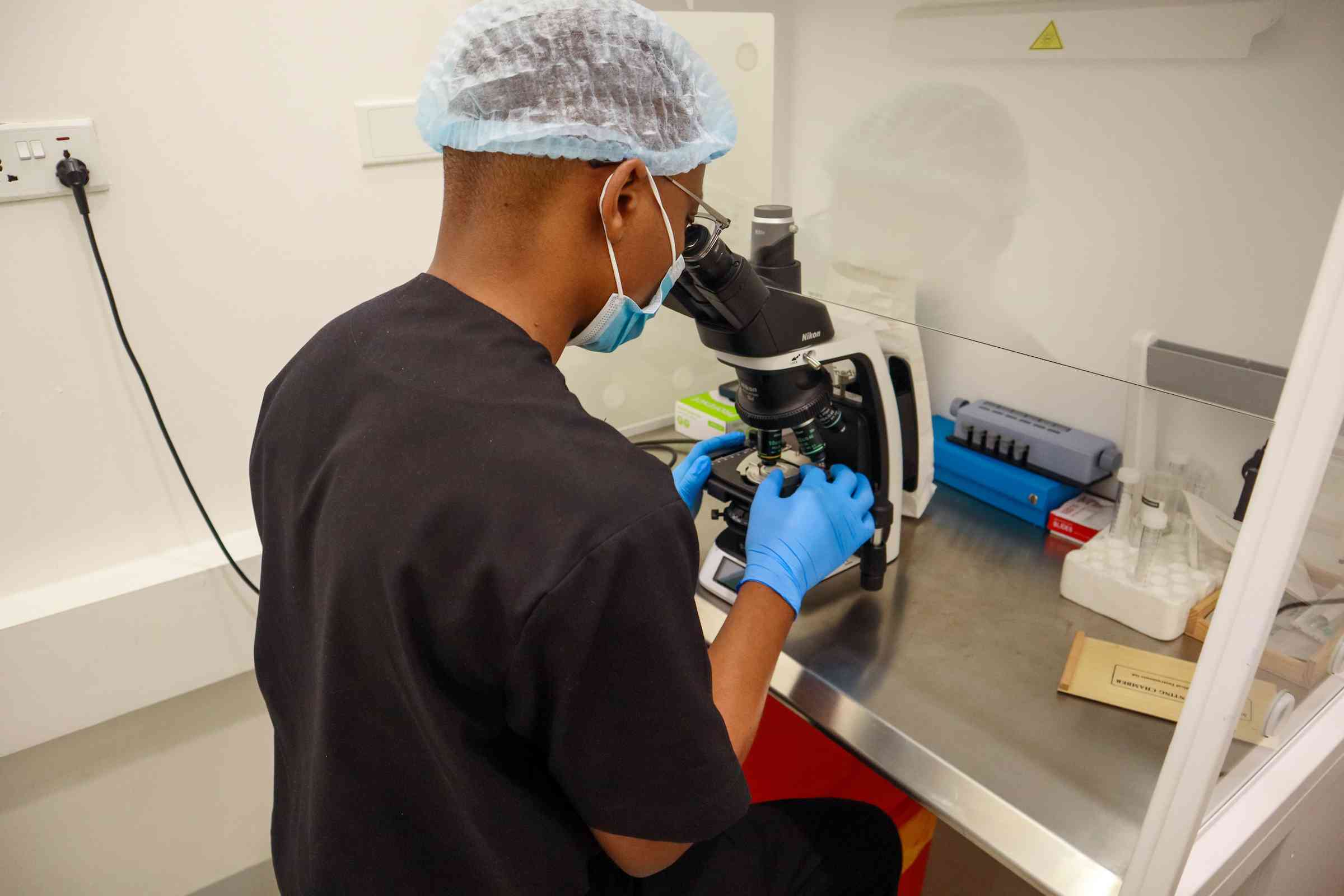
Opendi, who sponsored the bill, told Global Press Journal she finds claims about foreign influence “insulting.” Ugandans who support the bill say it fills a gap in the country. “We can’t have a service that is unregulated yet very sensitive to our true definition of a Ugandan family. Family is about a man and his wife or wives and their children,” says Bukirwa Irene, a married mother of three children who supports the bill. Just across Uganda’s border, Kenya’s Parliament deliberates a similar bill introduced in 2022, also in the face of criticism from local sexual and gender minorities and human rights groups.
Globally, at least 12 million babies have been born through assisted reproductive technologies since the first child was born through IVF in 1978, according to The Lancet, a leading medical journal. IVF involves fertilizing an egg with sperm outside the body then implanting it in the patient’s uterus. It is becoming more common worldwide due to challenges with infertility, which affects about 17.5% of the world’s adult population, according to the World Health Organization.
But barriers remain. Spain was an early pioneer in granting adoption rights and assisted reproduction access to same-sex couples in 2005 and 2006. But until 2021, public access to IVF in many regions required an infertility diagnosis, making it harder for same-sex couples to qualify, according to a 2024 study published in the Demographic Research journal.
Still other countries have tightened their laws around assisted reproductive technologies in the last few decades. In 2020, Hungary passed a law banning adoption by same-sex couples. In 2023, Italy introduced a law that restricts access to surrogacy for same-sex couples, even prohibiting them from registering children born via surrogacy abroad. In Uganda, Rose Nalukwago, a lesbian and a single mother, is among those worried about the proposed law. Two years ago, she gave birth after four cycles of IVF and two embryo transfers.
Now, Nalukwago is nearly 43 and wants another child. But she sees this new bill as a threat. It is “limiting and discriminative,” she says, excluding anyone who isn’t heterosexual and married from having children. “Whether I am married or not, single or not, queer or not, I should be able to have the right to access assisted reproductive technology to have children,” she says.
Nakisanze Segawa is a Global Press Journal reporter based in Kampala, Uganda.
Global Press is an award-winning international news publication with more than 40 independent news bureaus across Africa, Asia and Latin America.




